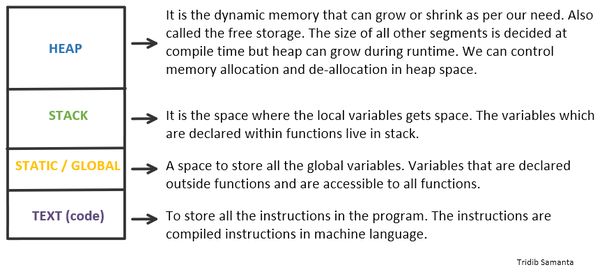We dig into recursion and learn that Michael is the weirdo, Joe gives a subtle jab, and Allen doesn't play well with others while we dig into recursion.
This episode's show notes can be found at https://www.codingblocks.net/episode154, for those that might be reading this via their podcast player.
Sponsors
- Datadog – Sign up today for a free 14 day trial and get a free Datadog t-shirt after creating your first dashboard.
News
- Thank you all for the reviews:
- iTunes: ripco55, Jla115
- Audible: _onetea, Marnu, Ian
Here I Go Again On My Own
What is Recursion?
- Recursion is a method of solving a problem by breaking the problem down into smaller instances of the same problem.
- A simple "close enough" definition: Functions that call themselves
- Simple example:
fib(n) { n <= 1 ? n : fib(n - 1) + fib(n - 2) } - Recursion pros:
- Elegant solutions that read well for certain types of problems, particularly with unbounded data.
- Work great with dynamic data structures, like trees, graphs, linked lists.
- Recursion cons:
- Tricky to write.
- Generally perform worse than iterative solutions.
- Runs the risk of stack overflow errors.
- Recursion is often used for sorting algorithms.
How Functions Roughly Work in Programming Languages
- Programming languages generally have the notion of a "call stack".
- A stack is a data structure designed for LIFO. The call stack is a specialized stack that is common in most languages
- Any time you call a function, a "frame" is added to the stack.
- The frame is a bucket of memory with (roughly) space allocated for the input arguments, local variables, and a return address.
- Note: "value types" will have their values duplicated in the stack and reference types contain a pointer.
- The frame is a bucket of memory with (roughly) space allocated for the input arguments, local variables, and a return address.
- When a method "returns", it's frame is popped off of the stack, deallocating the memory, and the instructions from the previous function resume where it left off.
- When the last frame is popped off of the call stack, the program is complete.
- The stack size is limited. In C#, the size is 1MB for 32-bit processes and 4MB for 64-bit processes.
- You can change these values but it's not recommended!
- When the stack tries to exceed it's size limitations, BOOM! … stack overflow exception!
- How big is a frame? Roughly, add up your arguments (values + references), your local variables, and add an address.
- Ignoring some implementation details and compiler optimizations, a function that adds two 32b numbers together is going to be roughly 96b on the stack: 32 * 2 + return address.
- You may be tempted to "optimize" your code by condensing arguments and inlining code rather than breaking out functions… don't do this!
- These are the very definition of micro optimizations. Your compiler/interpreter does a lot of the work already and this is probably not your bottleneck by a longshot. Use a profiler!
- Not all languages are stack based though: Stackless Python (kinda), Haskell (graph reduction), Assembly (jmp), Stackless C (essentially inlines your functions, has limitations)
The Four Memory Segments
 source: Quora
source: Quora How Recursive Functions Work
- The stack doesn't care about what the return address is.
- When a function calls any other function, a frame is added to the stack.
- To keep things simple, suppose for a Fibonacci sequence function, the frame requires 64b, 32b for the argument and 32b for the return address.
- Every Fibonacci call, aside from 0 or 1, adds 2 frames to the stack. So for the 100th number we will allocate .6kb (1002 * 32). And remember, we only have 1mb for everything.
- You can actually solve Fibonacci iteratively, skipping the backtracking.
- Fibonacci is often given as an example of recursion for two reasons:
- It's relatively easy to explain the algorithm, and
- It shows the danger of this approach.
What is
Popular Podcasts
On Purpose with Jay Shetty
I’m Jay Shetty host of On Purpose the worlds #1 Mental Health podcast and I’m so grateful you found us. I started this podcast 5 years ago to invite you into conversations and workshops that are designed to help make you happier, healthier and more healed. I believe that when you (yes you) feel seen, heard and understood you’re able to deal with relationship struggles, work challenges and life’s ups and downs with more ease and grace. I interview experts, celebrities, thought leaders and athletes so that we can grow our mindset, build better habits and uncover a side of them we’ve never seen before. New episodes every Monday and Friday. Your support means the world to me and I don’t take it for granted — click the follow button and leave a review to help us spread the love with On Purpose. I can’t wait for you to listen to your first or 500th episode!
Stuff You Should Know
If you've ever wanted to know about champagne, satanism, the Stonewall Uprising, chaos theory, LSD, El Nino, true crime and Rosa Parks, then look no further. Josh and Chuck have you covered.
The Joe Rogan Experience
The official podcast of comedian Joe Rogan.